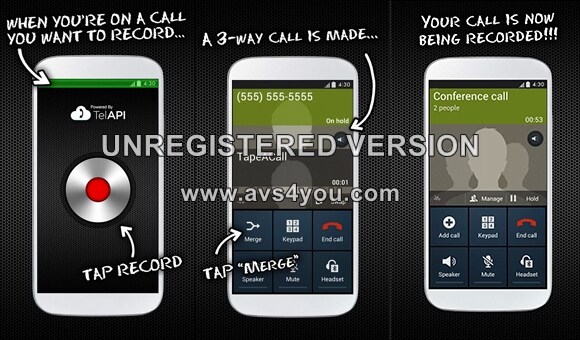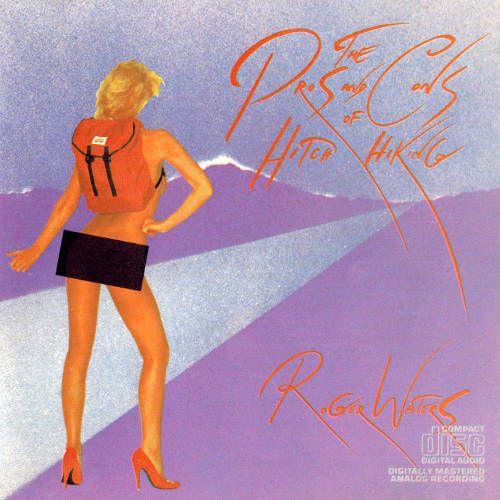38 pros and cons of record labels
The Pros and Cons of Vinyl Records - Sound Matters The problem is compounded further by the progressive reduction of linear resolution as a record progresses. In other words: there is more vinyl per second available at the large-diameter beginning of the record than exist at the smaller-diameter toward the end of each side. Major Labels vs Independent Labels - TeenStar Pros and cons of major record labels While the pros of a major record label may amount to a small list, bear in mind the value of each of these pros is immense. Pros Established powerful connections and influence. Vast funding for top-quality recording facilities. A global promotion and distribution capability.
The Pros and Cons of Independent Record Label Deals They usually don't have the coffers to fund an all-out media blitz like the major labels, and they often have to get creative with promotion ideas. They also can't afford big advances, fancy packaging, large recording budgets, tour support, and other perks a major label has the funds to offer you.

Pros and cons of record labels
Disadvantages of Food Labels May mislead people People may not be able to read food labels properly Food labels only give basic information Optimal calory intake depends on individual circumstances Often no difference between good and bad fats Producers often try to mask unhealthy ingredients Deceptive claims Consumer trust can be exploited How Do Record Labels Work? | 2021 [Free Guide] How much does a label take from the artist? Major labels have been known to take upwards of 90% of net sales. Mid-size independents royalty rates average between 50-75%. The most common royalty share amongst small indie labels is 50/50. You can even offer a more lopsided royalty in favor of your artist, something like 35% for the label and 65% ... Indie Labels vs Major Labels: Pros, Cons, Difference & Which Label is ... Cons: Smaller budgets compared to majors Less influence and connections with the global music industry Won't be capable of promoting as much as a major Benefits of signing with a record label "What we wanted was some control over our [master recordings] and how it was used in the future by them.
Pros and cons of record labels. Independent Artist Or Record Label Deal: The Entrepreneurial ... - Forbes The Pros And Cons Of Record Labels. Record labels can be very beneficial as well. Being given a huge sum of money upfront has its advantages, such as helping you get on your feet and taking you ... What are the pros and cons of signing to a major record label ... - Quora Cons: The label is underwriting the cost of packaging and selling the artist. Depending on the contract agreement, they get most of the money if there's a profit. This will improve greatly if the artist can remain very successful for a long period of time. If the entire project comes in at a loss, the artist can work for Continue Reading Everything You Need to Know About Record Labels - Okayplayer Labels have teams of people who conduct research. They study numbers, stats, patterns from socials to streaming. It's a real-time, real-world way of doing a focus group. Evidence collection of... Roger Waters - The Pros And Cons Of Hitch Hiking - Vinyl Record ... The Title is The Pros And Cons Of Hitch Hiking. 5.01 AM The Pros And Cons Of Hitch Hiking, Part 10. Visually this disk may have light visible wear, marks, and or hairlines. The label on the disk is likely to have minor wear and possibly writing on the label.
Pros and Cons of Indie Record Labels You Need to Know Thumbs Up (The Pros) Close Relationships Due to the small size of an indie label, it makes all the experiences more personal. Indie labels work closely with their artists at every step of the journey, from mentoring to skillbuilding. When you have a close knit team on call, it can make the creative process more streamlined. The Pros And Cons Of A Major-Label Record Deal - Disc Makers Blog The pros of a major-label record deal. The advance. One of the first things that every artist thinks about is that big label advance and, indeed, many major-label contracts include an advance to help you cover the cost of up-front expenses, including recording. This frees you up to focus on your music, which is awesome, but it is important to ... Being an Independent Artist vs. Signing to a Record Label The Pros of Signing with a Record Label 1. Available resources and budget: Established record labels have the resources and funding to provide support for mastering, distribution, album artwork creation, marketing, merchandise, touring, music videos, and other expenses. However, the budget and resources available depend on the label. 2. Pros And Cons Of Being Signed To A Record Label This exposure is crucial to building and growing your fan base and of course, making more money from your music. Paid for and advance payments: The other main pro of being signed to a record label is that the studio time, production, promotion and other potentially expensive parts of creating and releasing music are paid for by the label.
Indie vs. Major Record Labels: Which is Right for You? Indie vs. Major Record Labels. There are several factors worth considering when weighing the pros and cons of indie and major record labels: 1. Trust and Close Working Relationships. Indie labels and boutiques generally have the advantage here. They have smaller artist rosters, which means you will get more attention. DIY vs Indie Labels vs Major. What you need to know Without a label, your network can be limited to those who you know directly. Independent Record Label Pros and Cons Pros: A Team that Believes in Your Music: Indie music labels are smaller companies who are less likely to be pressured by a board of directors to sign a specific sound, or promote a specific look just for success on the charts. What Is An Independent Record Label- Pros & Cons - SparkDrop Records Major record labels have more connections and more commercial influence. Compared to indies, they enjoy more media publications that give their artists more exposure. Even with more ruthless contracts, the exposure you enjoy may just propel your career to the next level. Independent Labels vs Major Labels Pros And Cons To Starting Your Own Label - ReverbNation Blog Pro: Creative and financial freedom The biggest advantage of releasing music under your own label is that you don't have to answer to anyone. Everything from the sort of music your label chooses to release to marketing tactics to financial details are 100% within the sphere of your control.

A Real Man's Objective Reviews / Gunsumer Reports: FNAR Review - Posts, Pros, Cons, and Bottom Line
The Pros and Cons of Independent Record Labels Generally, indie record labels will be willing to provide artists with relatively "empathetic" contracts. Such contracts are more likely to offer fair percentages (50/50 is the standard) to their artists.These arrangements usually earn artists more money than the standard 360 deals of huge label organizations. The shared ownership rights indie labels usually offer also mean that the artist ...
16 Pros and Cons of a 360 Record Deal / Music Contract 2. You could lose the rights to your music. Even though you write and perform the music after signing a 360 deal, that doesn't mean you will own the long-term rights to your creations. The support of a label can be appealing because it helps to advance your career, but they typically own the copyrights to your songs.
Understanding the Pros and Cons of Label Record Deals When you're trying to decide whether your ideal home is with an independent label or a major label, keep the pros and cons in mind. Pros Larger promotional budgets More connections More clout and influence Can do business in bulk Cons Resources spread among many acts Staff turnover Limited personal attention Limited negotiating leverage Pros
Record Labels: Major vs. Indie - XNilo Records You might have the impression that there are many Major Labels to choose from, but the truth is that there are only 4 Major Labels: Sony-BMG, Universal Music Group, EMI, and Warner Music Group. All those other so-called "major labels" are actually sub-labels under one of the 4 Major labels. For example: Columbia, Arista, Epic, Provident ...
The Indie label v The Major labels, pros and cons! - Medium The Pros and Cons of signing to a major label! Pros Larger promotional budgets More connections More clout and influence Can do business in bulk Cons Resources spread among many acts Staff turnover...
Pros And Cons Of Starting A Record Label - Looperman The thing is that there are a lot of so called labels which operate out of the comfort of their own bedroom and all they do is promote your work in a limited environment and within a small group of followers (no offense intended to anybody that runs such a label but I've been on both sides of the fence and know how different things are).
Pros & Cons Of Signing With Major Label vs. Indie Label vs. Staying ... The biggest strength of a major label is its huge "bank" and opportunity to invest money in an artist's music, promo, marketing, etc. Signing to a label like this, an artist doesn't have to worry about budget - the label will spend its funds on a song, album, video, artwork, visualizers and everything else that needs to be covered for a release. 4.
24 Pros & Cons Of Starting A Record Label - Starter Story Here are all of the pros and cons of selling record labelling services online: Starting a record label can be really rewarding work. After all, you are solving an immediate issue for your customer and you're working on something you truly care about. You never know who you will meet as a record label.
5 Reasons Record Labels Still Matter | Features - MN2S Here are 5 reasons record labels still matter. 1. They can make your music better. Decades before the dawn of the internet, the only way a band could record music to a professional standard was to get a record deal with a label who would buy them time in an expensive studio. Now, digital audio workstations (DAWs) and affordable home equipment ...

Major Labels vs Independent Labels | Differences Between Major and Indie Record Labels - TeenStar
Indie Labels vs Major Labels: Pros, Cons, Difference & Which Label is ... Cons: Smaller budgets compared to majors Less influence and connections with the global music industry Won't be capable of promoting as much as a major Benefits of signing with a record label "What we wanted was some control over our [master recordings] and how it was used in the future by them.
How Do Record Labels Work? | 2021 [Free Guide] How much does a label take from the artist? Major labels have been known to take upwards of 90% of net sales. Mid-size independents royalty rates average between 50-75%. The most common royalty share amongst small indie labels is 50/50. You can even offer a more lopsided royalty in favor of your artist, something like 35% for the label and 65% ...
Disadvantages of Food Labels May mislead people People may not be able to read food labels properly Food labels only give basic information Optimal calory intake depends on individual circumstances Often no difference between good and bad fats Producers often try to mask unhealthy ingredients Deceptive claims Consumer trust can be exploited









Post a Comment for "38 pros and cons of record labels"